Java Books for Beginnners to Learn Java
“We lose ourselves in books, We find ourselves in them as well”.
Books are a vital installment to learning. Even in this era of technological advancements, books are still, a fundamental part of our education, and in this article, we would be suggesting books that would greatly help you and give you a learning boost!
All these books are a must-have for every Java developer out there. In this list, we have added 15 of our top picks for books ranging from absolute basics to books specializing in compound topics such as multithreading and distributed systems using Java.
So let us dive into our top picks for books in Java!
Top 15 Java Books
1. Java a beginner’s guide by Herbert Schildt
This book is an absolute must-have for every java newbie out in the market. It features an in-depth explanation of the core concepts of Java.However, it is also for programmers who already have experience and want to sharpen their skills. The latest edition includes the latest Java support. There are quizzes at the end of every chapter to revise and wrap up the concepts taught. Summing up, this is a great book for beginners as well as experienced Java programmers.
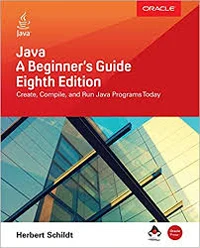
2. Java-The complete reference by Herbert Schildt
This is the same as Java beginners guide but it comes with essentials of Java such as API and Java application development with GUI support from Java SWING and AWT. This book ranges from a beginner’s problem solver to a developers best friend.
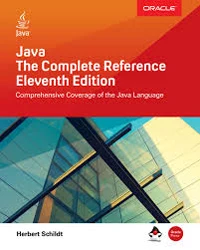
3. Clean Code- A Handbook of Agile Software Craftmanship by Pearson Educations
This book, as the name suggests, aims at helping programmers write cleaner and better code. It has three sections mainly. The first part involves teaching about correct coding patterns and the principles of writing cleaner code. The second part addresses the case of rising complexity. These lessons help the reader in writing efficient code. The third chapter goes on to describe the programs that were explained in the previous chapters. It takes a heuristic approach while doing so for better understanding.
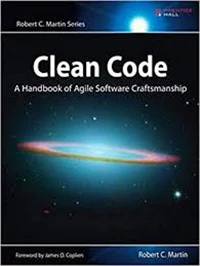
4. Beginning Programming with Java for Dummies by Barry Burd
This is probably one of the most popular books specifically written keeping a beginner in mind. It used lucid language and simple beginner-friendly programs to allow the readers to grasp the concept of the topics at a fast pace. It explains methods, loops, functions, and all the building blocks of Java very clearly and also includes exercises and quizzes at the end.
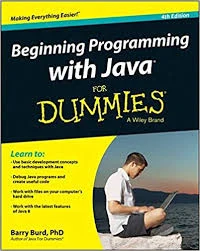
5. Head First Java by Kathy Sierra and Bert Bates
This book takes a different approach to learning. In Spite of slogging with text about programming, this book takes a visual approach in teaching the basics of Java. It starts from the beginner topics and moves on to complex topics like distributed programming and GUI development by Swing and AWT.
Summing up it is a great book for beginners and a must-read.
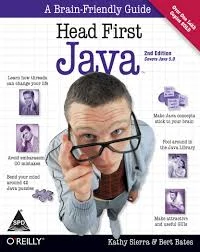
6. Java- Programming basics for absolute beginners by Nathan Clark
As the name indicates this book is beginner-friendly and loaded with examples. It is written in an easy-to-read language which is helpful for learning tricky concepts such as loops and functions. What readers most love about this book is that it includes examples after every topic along with quizzes and important questions at the end of each chapter which makes understanding the concept very easy. It also has assignments that will enable you to write programs of your own in no time!
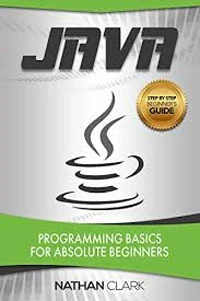
7. Core Java Volume 1- Fundamentals by Horstmann
This book starts off with the basics of programming and introduces Java as a language that is easy to learn and powerful to develop vast big-scale applications. It also educates us about various APIs that can be designed using Java. It also explains modularization. This includes explanations about basic programming concepts such as functions, modules, packages, data structures, etc.
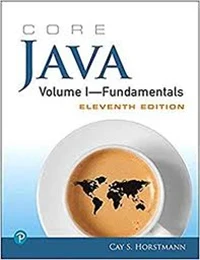
8. Effective Java by Joshua Bloch
Effective Java is the book that is useful after the reader has already got some work done in the beginner ally and is ready to get his hands dirty with some advanced concepts. It has 78 programmer’s rules of thumb which are basically solutions for some of the frequently faced challenges. It also has explanations about how to create new design patterns. This uses generics and enums with a lot of examples to make sure the reader is ready to code some for himself/herself!
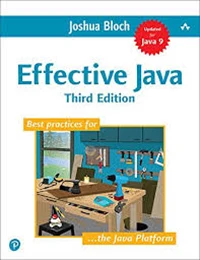
9. Thinking in Java by Bruce Eckel
This book is your best friend if you want to think like a programmer in Java. It houses over 500 working programs carefully written in over 700 compiling files which are rewritten for every version of Java. It is an object-oriented approach book designed for both beginners and advanced developers in Java, featuring a wide range of topics such as concurrency, multithreading, XML file handling and so on, This book continues to amaze you with every page you turn.
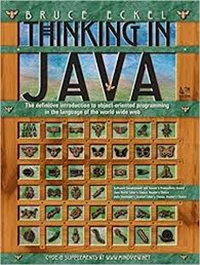
10. Head-first design patterns by Eric Freeman & Elisabeth Robson with Kathy Sierra & Bert Bates
This book clearly delves into the concept and importance of design in programming. This may seem to be an unimportant topic at first but as you progress to higher levels of programming you will understand that design patterns influence a lot of programs’ output and functioning. This book begins with Inheritance and Composition which is fantastic and promotes faster learning by self with exercises after every concept is explained.
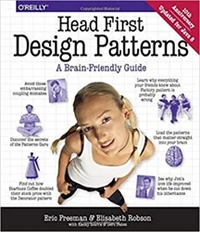
11. Java concurrency in practice by Joshua Bloch
This is the go-to book for developers who want to learn about multi-threading and concurrency. It goes through the topics in a detailed manner. It also focuses on deadlock starvation, race conditions, and thread safety. This also includes careful evaluation and definitions of Java classes like CyclicBarrier, CountDownLatch, Semaphores, and more!
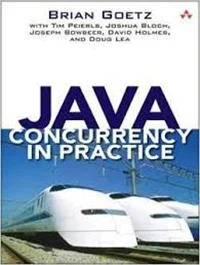
12. Java generics and collections by Naftalin and Philip Wadler
This book specializes in generics and collections which are core areas of the Java language. It contains an in-depth explanation of Sets, Lists, Queues, and Maps. There are examples telling us which collection works best in a particular scenario. It also features a special comparison chart that allows us to understand the use of ArrayLists, Hashmaps, and LinkedHashMap.
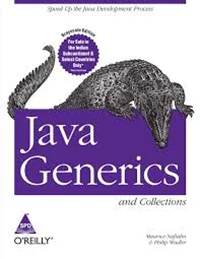
13. Java Performance by Binu John
This book particularly talks about JVM internals, garbage collections, JVM tuning. This book is mostly for senior Java developers. It talks about performance monitoring tools used in Java. It can be useful for beginners but it is a personal suggestion to get familiar with basic Java before starting with this book.
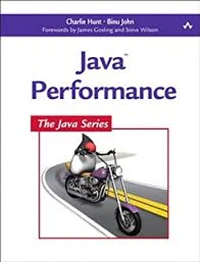
14. Java puzzlers by Joshua Bloch
Even the most proficient Java developers can sometimes get stumped at a Java corner case. Even though Java has been a great programming language that is more secure than C++. The Java puzzles live up to its name by providing tricky puzzles for you to solve. This also comes in handy in technical interviews. It also has explanations for each of those puzzles for a fun-learning session.
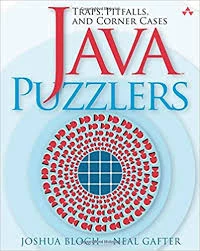
15. Java SE 8 for the Really Impatient by Cay.S.Horstmann
We understand the problem of learning in today’s fast-paced world. Learning Java is even tougher with all our colleges, schools, assignments, part-time jobs, and assignments. Everyone needs to learn JAVA, but there is no time. That’s why we decided to keep this book, the best, for the last. This is an incredible book that teaches you all but within a short span of time.
It is difficult to keep this book down as it goes on to explain Java’s date and time API, streams, and functional interfaces. It also packs enhancements like string joining, annotations, and more.
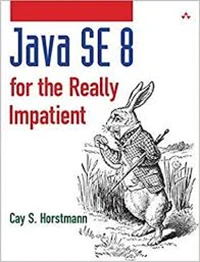
Summary
We took a look at some of the top books to get your hands dirty as a Java developer. These books would surely help a lot in your learning journey.